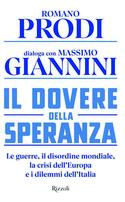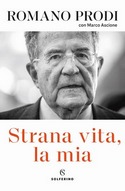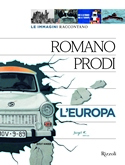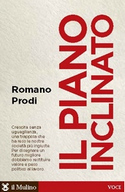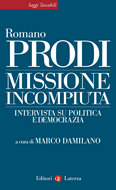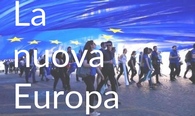Il significato dei Referendum sta raramente nel quesito che pongono
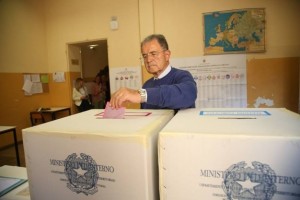 Romano Prodi: ‘My Commission is over’
Romano Prodi: ‘My Commission is over’
‘Referendums are rarely about the question they ask,’ says the former prime minister and Commission president.
Interview by Alberto Mucci with Romano Prodi on Politico.Eu of november 29th 2016
BOLOGNA, Italy — The Italian media likes to start articles about Romano Prodi with a metaphor of a long bicycle ride, one of the former president of the European Commission’s passions.
His career, the cliché goes, has taken the same strength, time and dedication. Starting as an economics professor, Prodi has headed two ministries, carried the banner of the Italian center left against former Prime Minister Silvio Berlusconi and served as prime minister twice, with a stint in between in Brussels in 1999-2004 when he oversaw the enlargement of the EU from 15 to 25 members.
Today, the tide has shifted. The EU is set to get smaller, not bigger. And so Brussels is often on his mind — especially how it has changed since his tenure.
The EU, the 77-year-old explains, has morphed from what he liked to call a “union of minorities” to a “coalition of states,” a shift that has changed how the Union works and plans for its future. “During my time at the Berlaymont,” he says, “one just had to turn on a news channel of a European country and it was all about the Commission. Today, it’s all about the Council,” referring to the Brussels institution where the member nations hold sway.
Prodi is sitting in the corner of a small office in downtown Bologna in the headquarters of the Foundation for World Wide Cooperation, a non-profit he founded in 2008. Behind his desk hang the flags of the EU and Italy. On the wall hangs a copy of the flag of the Cisalpine Republic, an area of northern Italy that gained independence at the end of the 18th century for a few years before being conquered by Napoleon.
As member countries have snatched power from the Commission, the voices of national governments become more important in determining European affairs — with decidedly uneven results. France lost political and economic influence. Italy fared even worse. And the United Kingdom fared well, until it shot itself in the foot when former Prime Minister David Cameron called the Brexit referendum in January 2013.
The result: German domination, as other countries have either faded or taken shelter under its umbrella. “The [resolutions of the] Greek crisis was not a Brussels-Athens decision, it was a Berlin-Athens decision,” says Prodi.
The turning point, he adds, was the 2005 decision by then French President Jacques Chirac to call a referendum on whether the country should ratify the EU constitution. The decision by French voters to vote “non” was a major blow to the Commission-centric European project.
Hanging over his analysis is a referendum soon to be held in his own country — in which voters will decide on December 4 whether to approve proposed changes to Italy’s constitution. “Without trying to make reference to the upcoming referendum [in Italy], referendums are rarely about the question they ask,” says Prodi.
The vote is widely seen as a make-or-break moment for Prime Minister Matteo Renzi, and in many European quarters, on Italy’s ability to carry out the reforms necessary for it to thrive in the eurozone. Called at a moment when Renzi enjoyed high poll ratings, it now seems set to fail.
While Prodi is clearly no fan of referendums, he has declined to take a position on this one. “I decided to keep out of Italian politics,” he says. His career ended in 2013 when members of his own party declined to support his bid for the presidency. Many believe Renzi, then a rising political star, was behind the move. “Let me be honest and explain myself,” Prodi says. “Either you’re in or you are out. The moment you are in the middle, that can be a very dangerous place to be.”
What he’s more interested in talking about is China. The current controversy over dumping is not the main issue, he says. The real problem is that the EU lacks a framework with which to respond when Chinese companies seek to purchase European companies. “China has rules and protocols on who can invest what in which sector, while the EU is lacking such rules,” he says.
Germany, for instance, allowed one of its most advanced robotics companies (Kukka) to be bought by Chinese investors, but then opposed the purchase of another much less strategic company (Aixtron SE) a few weeks later. “Our reaction to foreign purchases is always improvised,” says Prodi, adding that the solution is to speed up the ongoing negotiations on the bilateral investment treaty.
Time is up, and Prodi has to go. Asked about what he does during his free time he says: “I ride my bike.”






